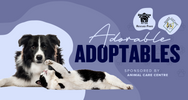The frigid winter temperatures provide some challenges for animals, especially cattle and horses. Here are some tips to keep them hydrated, fed, mobile, and warm.
"Getting a coat for your horse can be problematic at times because when we have severe weather shifts in this province, it can be cold in the morning and warm at night. That is when sweating can happen underneath that coat. The moisture from that blanket can make them even colder," explained veterinarian at Animal Care Centre of Strathmore, Dr. Jodi Viste.
Considerable temperature swings from warm to cold can result in a horse that is wet and wearing a damp blanket in the cold which will no longer provide effective warmth or insulation.
Animals like horses and cattle need to have access to adequate and unfrozen water during the winter.
"The most important is to have really good water sources that aren't freezing because they need a lot of water throughout the day and if they aren't getting that water then they're eating more. They can get obstructed and go into a colic."
Having good feed and a good shelter for outside animals is another important factor.
"They need lots of good quality feed and they need really good shelter from that wind."
Dr. Viste explains she sees the most cases of frostbite on calves.
"Cows like to go into delivery in the middle of storms, it's a weird phenomenon. So of course, if it's windy and cold and they're wet when they're born, we then see a loss of the tips of ears and tails commonly in calves."
To prevent this, Dr. Viste says it's best to make sure there's enough shelter for cows in the areas that they're delivered in with lots and lots of bedding so that they're delivered into straw rather than onto the cold ground, preferably in a barn.
Send your news tips, story ideas, pictures, and videos to news@strathmorenow.com.






